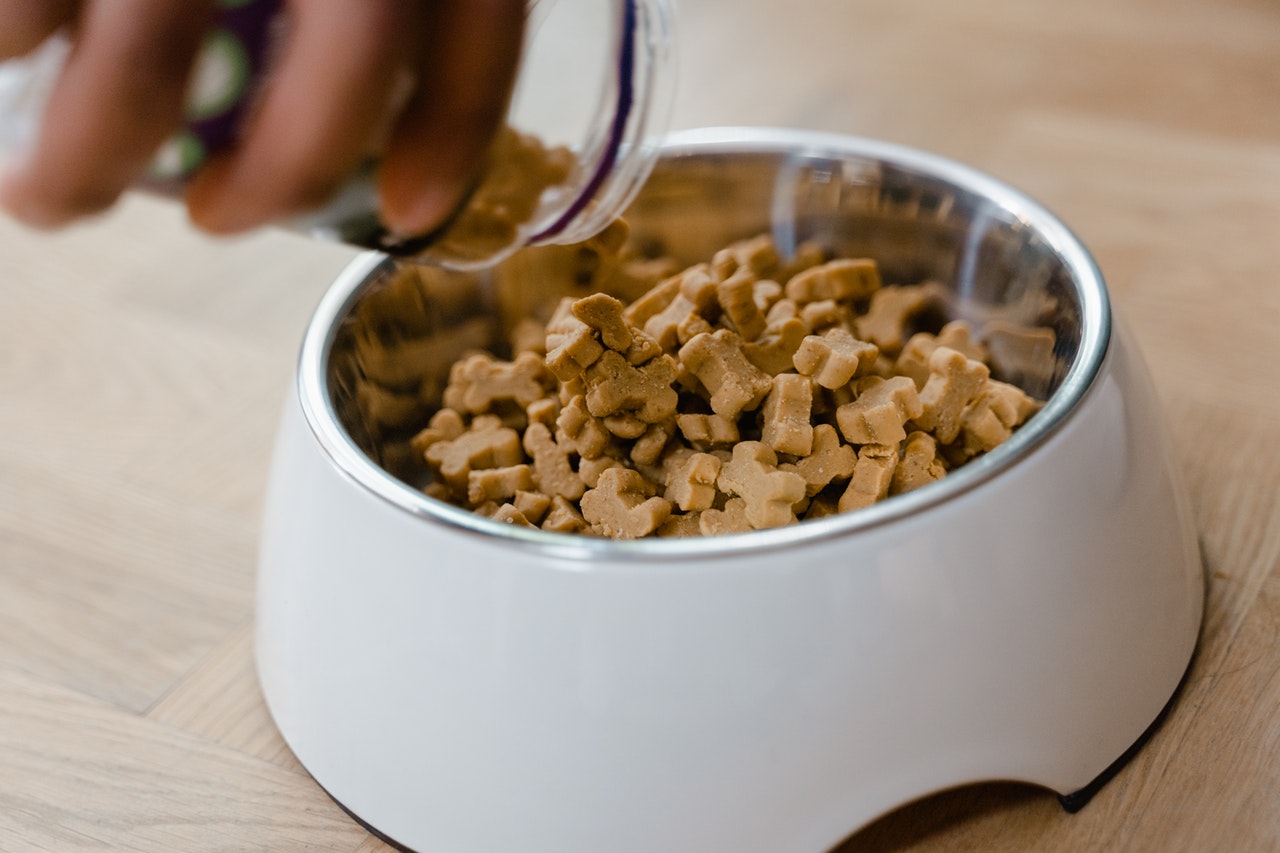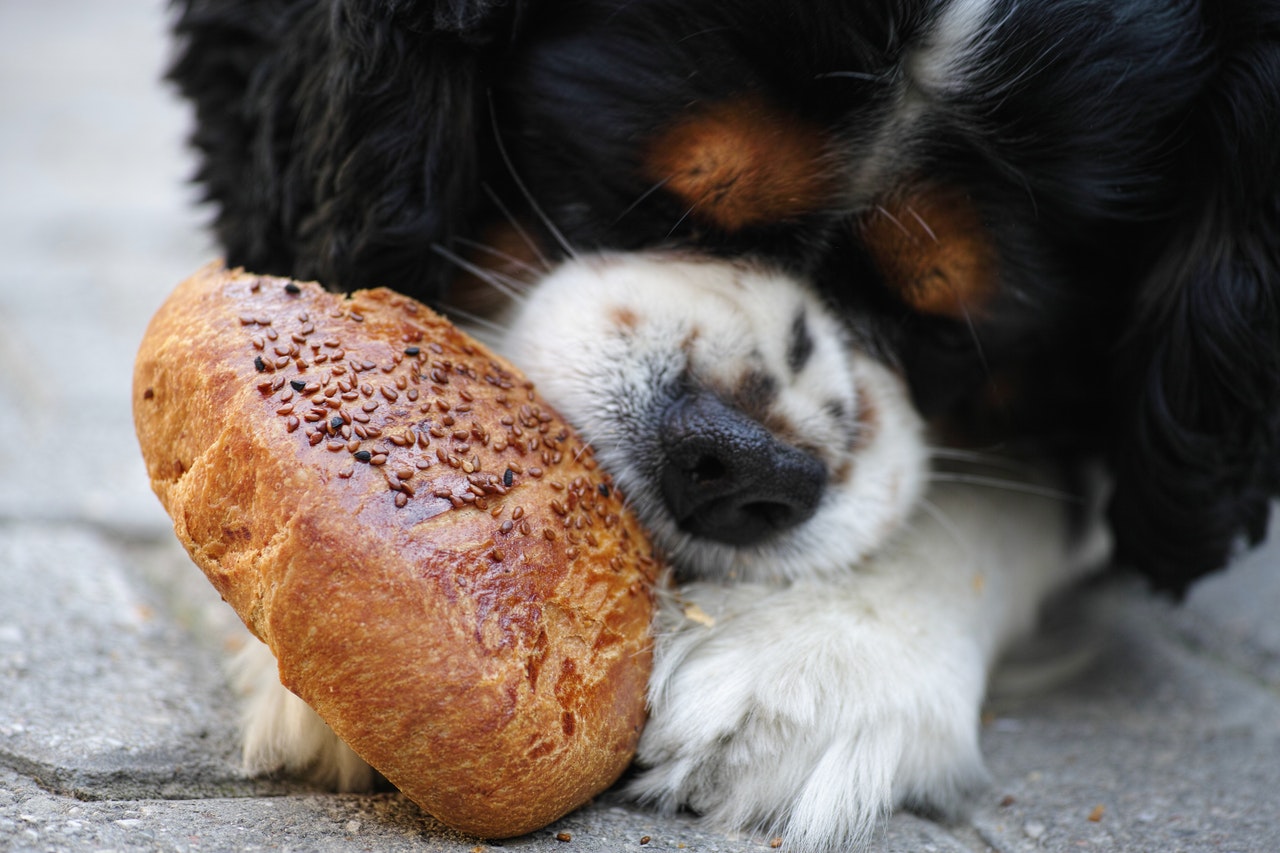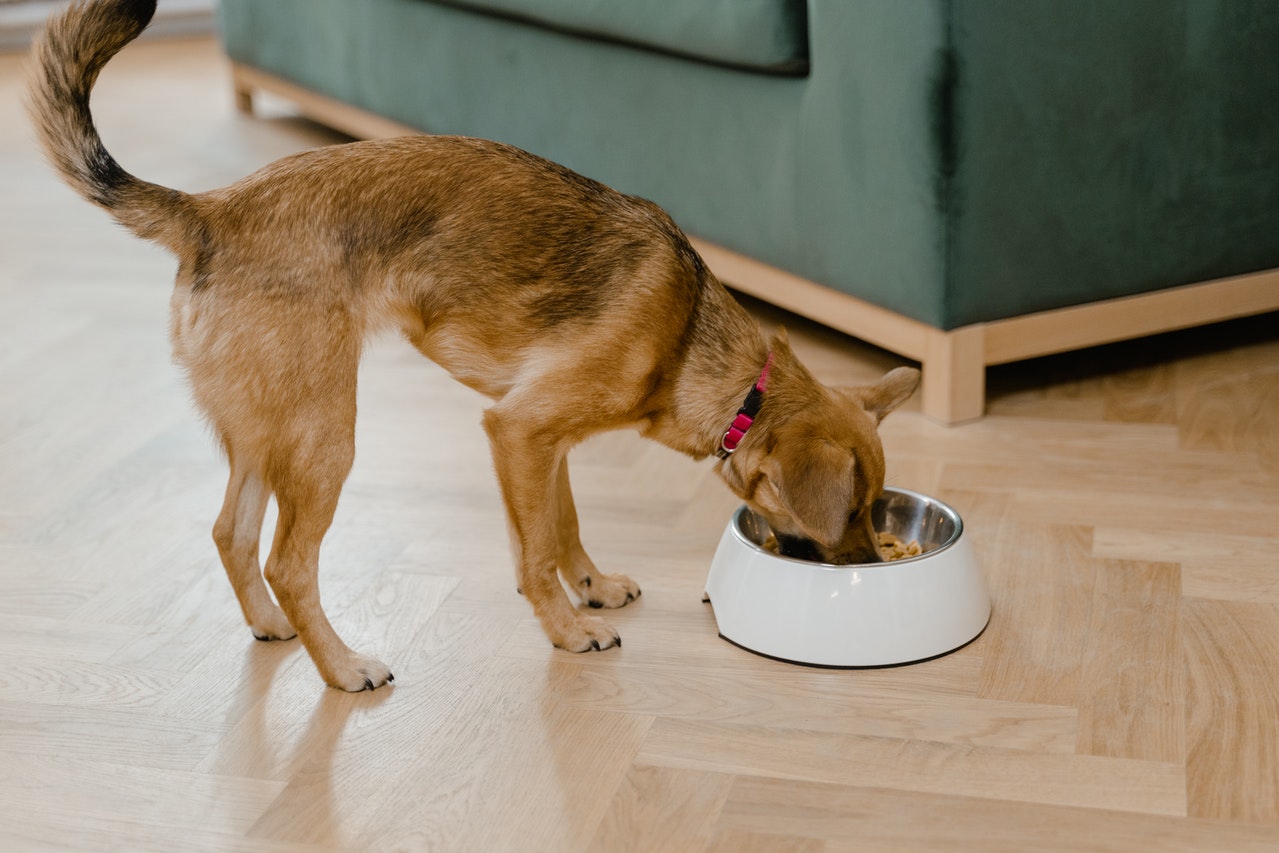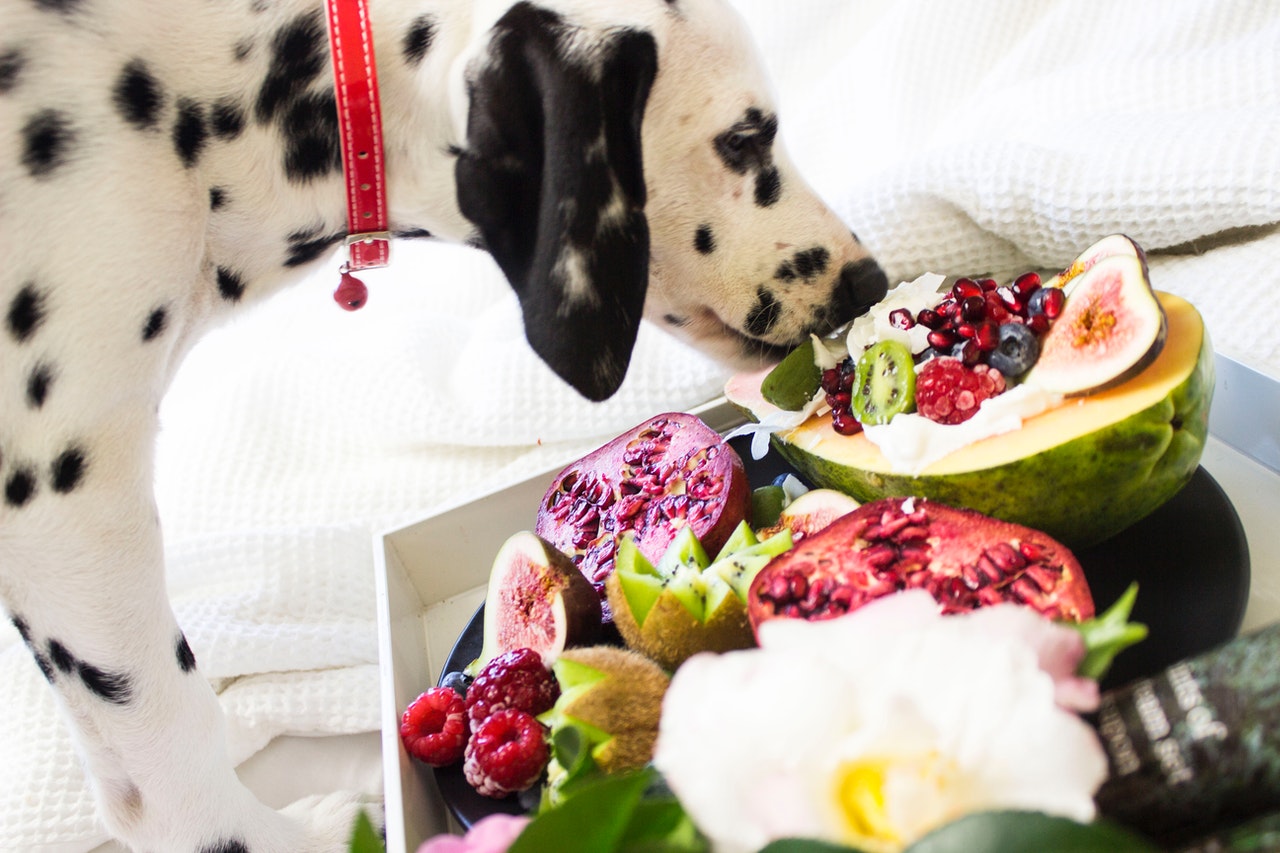Bulldogs are notorious fart machines. But if its flatulence is starting to smell foul, something might be going on with its health. You’re probably asking, why do my dogs farts smell like rotten eggs? In this post, we tackle this problem to give fellow dog owners an idea of the culprit behind the smelly concern.
Like humans, the smell of a dog’s fart tells a lot about its digestive health. Foul-smelling flatulence often indicates digestive issues like intolerances, Crohn’s disease, colitis, ulcer, and so on. But since smelly flatulence is a general symptom, it’s still best to consult the vet if you’re starting to worry about your pet’s tummy health.
Why do my dogs farts smell like rotten eggs?
It’s normal for dogs to fart from time to time. Also, it’s not really a cause of concern if the canine’s farts have a whiff of foul smell. However, it’s a different story once your pet’s fart smells like rotten eggs or sulfur.
If your dog’s farts are a killer, the following might be the reasons why:
1. Your dog is eating a high-protein diet.

A high-protein diet is a common culprit as to why a dog’s poop and fart will smell sulfuric. In this case, we point our fingers at the meat ingredient.
Specifically, red meat contains high levels of sulfur. When this sulfur is mixed with gut bacteria, odorous gasses will be released in large amounts. This explains why your dog may have loud and smelly farts.
Also, it’s possible that your dog is finding it hard to digest the protein source or meat ingredient in its food. With this, excessive gas will be released and it’s often coupled with a nasty, rotten smell.
If you’re worried about this, you can always consult the vet for a potential switch to a new dog food formula. Just remember that such changes must be done gradually to prevent upsetting your pet’s stomach and triggering more flatulence.
If your dog really needs to consume a high-protein diet, the key here is choosing the right meat ingredient. Fish, chicken, turkey, and lamb are known to be easier to digest among dogs than beef, pork venison, or veal.
In the end, it’s all about balancing your dog’s dietary needs and preferences.
2. You’re feeding your dog various veggies.
If your dog is eating an easy-to-digest meat ingredient, the next thing you should check is the vegetable component.
Any green vegetable will surely increase your dog’s gassiness to various levels. And aside from making your dog gassy, leafy and cruciferous veggies also worsen its smell.
You should remember that cabbage, cauliflower, broccoli, and similar vegetables can make your dog’s fart smell like rotten eggs. If paired with red meat as the protein source, the odor would be much stronger.
Overall, vegetables are good for dogs since it’s an ideal source of vitamins and minerals. Still, you should be wise with your options to save your nose from suffering.
3. You’re giving human food to your dog.

Many human food items are safe for dogs, but it just happens that some make the pooch gassier than ever. This is why vets discourage feeding table scraps to dogs as it can cause more harm than help.
Aside from making your dog’s fart smell like rotten eggs, table scraps also increase your pet’s risk of obesity. The high sodium and fat content of many human food items is a recipe for a slew of health problems in canines.
Moreover, it’s easy to overlook basic ingredients that are harmful to dogs. For example, onions, garlic, raisins, grapes, and almonds are appetizing for humans. However, a substantial amount is enough to send your dog to the vet clinic.
Also, crowd favorites like candies, cakes, and tarts are filled with sugars and even xylitol. Even in small amounts, xylitol can be very lethal to any canine.
If you want to share your food with your dog, stick with the likes of sweet potatoes, bananas, apples, and other low-sugar fruits. But if you want to err on the side of caution, you should stick with your dog’s food and treats.
Nevertheless, you can always consult your dog’s vet about safe food items that you can feed the pooch.
4. Your dog has a food intolerance or allergies.
Excessive flatulence with a rotten smell can also indicate a case of intolerance or allergy. But before we proceed, allow us to differentiate the two.
First, intolerance happens in the dog’s digestive system. It occurs because your dog can’t digest or break down a specific food ingredient. In turn, the digestive system will go haywire. It will trigger adverse reactions like vomiting, diarrhea, lethargy, smelly farts, and even fever.
On the other hand, allergies happen because of an issue in the canine’s immune system. Basically, your dog’s immune system attacks a specific substance falsely detected as a threat even if it’s completely harmless.
Like intolerance, allergies can cause vomiting, diarrhea, farts that smell like rotten eggs, and lethargy. In many cases, canines with food allergies also experience hives or rashes.
Overall, both food intolerance and allergies can make your dog gassy and its flatulence will have a strong odor.
Unfortunately, there’s no absolute cure for intolerances or allergies. Nevertheless, dogs tend to develop and outgrow them at no particular age. The best way to address this problem is to get rid of the substance or food ingredient behind the irritation.
5. Your dog has intestinal parasites.

Intestinal parasites can wreak havoc on your dog’s body. Aside from sulfur-smelling gas, dogs with intestinal parasites will also experience recurring diarrhea, vomiting, distended belly, and unexplained weight loss. In general, odorous flatulence is the least concerning aspect of this problem.
As the parasites feed inside your dog’s stomach, these creatures release gas. Such gas will accumulate inside your dog’s digestive system until it’s released as a loud and smelly fart.
Also, these parasites can trigger intestinal infections in dogs, which also leads to flatulence that smells like rotten eggs. Specifically, a parasite called Toxocara canis causes stomach upset and unbearably stinky farts in canines.
Aside from digestive problems, intestinal parasites will affect your pet’s entire body if not treated right away. The parasites can spread into the other internal organs and the bloodstream. When this happens, your pet’s life will be in danger.
On the upside, intestinal parasites are highly preventable. It’s important to keep your dog’s deworming up-to-date and don’t forget to implement preventives.
6. Your dog has exocrine pancreatic insufficiency.
Exocrine pancreatic insufficiency or EPI is a condition in which the dog’s pancreas doesn’t function properly in producing digestive hormones.
EPI can trigger excessive gas and smelly stool in canines. In the process, the affected dog will also have smelly flatulence that resembles the odor of rotten eggs.
Aside from that, dogs with EPI also exhibit symptoms like pica, excessive appetite, and flaky coats. While all dogs can develop this condition, Collies, Chow Chows, Australian Shepherds, Akitas, and Cairn Terriers are at a higher risk.
To diagnose exocrine pancreatic insufficiency, your dog needs to undergo full blood chemistry and blood count. Your dog’s vet will also conduct TLI or Trypsin-Like Immunoreactivity Test (TLI). This test checks for low levels of blood trypsin, which occurs when a dog is suffering from EPI.
However, there’s no absolute cure for exocrine pancreatic insufficiency. Most cases will require life-long care by managing the condition through medication, diet modification, and enzyme supplementation. This is much so if the canine’s pancreas has been severely damaged already.
How to reduce your dog’s fart smell
Rotten egg-smelling farts don’t have to be a life sentence for both you and your dog. There are some steps you can take to reduce the nasty smell.
First, you should get your dog checked to rule out any potential health problems. Once the vet confirms that your dog is in the pink of health, you can do the following to make its farts more tolerable for your nose:
🐶Slow down your dog’s eating

When your dog eats too fast, it tends to swallow a lot of air. In the process, your pet becomes gassy and there’s a possibility that the flatulence will also be smelly.
Aside from being gassy, consuming too much air while eating also increases your pet’s risk of having a twisted stomach. This condition can turn deadly within hours, so it’s very crucial to pay attention to how fast your dog chows down its meals.
Fortunately, there are slow-feeding bowls that you can purchase, so your pet won’t gobble a full meal within seconds. These bowls have raised patterns that prevent dogs from making big bites. It’s available in various shapes, sizes, and designs to suit your preference.
🐶Switch to more digestible food choices
It’s also important to switch your dog to more digestible food options. This way, its stomach won’t have to work harder and release more gas just to break down the food particles.
For example, if your dog is having gas that smells like rotten eggs when eating a beef-based meal, you can switch to chicken or fish. These are easier to digest than red meat, which will directly reduce flatulence and stomach upset in your dog.
It’s important to consult your dog’s veterinarian if you’re planning to switch to a new diet. This way, the vet can recommend the formula that matches your dog’s needs based on the reason behind its smelly fart.
Also, the switch should be done gradually by replacing your dog’s meals with the new food in small portions. This is to allow your pet’s tummy to adjust to the new formula without experiencing stomach upset.
🐶Avoid dairy as much as possible
Dairy is one of the notorious culprits behind dog allergies and intolerances. While not all canines will have this problem, those who have usually experience flatulence with a rotten odor.
The likes of cheese and yogurt are safe for most canines, but they should only be given in small amounts. Too much can cause stomach irritation, especially for breeds like Bulldogs known for their sensitive tummies.
Remember that dairy products can make any dog gassy, which is the same case with humans. If you can avoid it without hurting your pet’s diet, it would be better.
🐶Tone down with the greens

Excessive consumption of cruciferous and leafy vegetables can give your dog’s fart a smell similar to rotten eggs. This is why you should be modest when serving these kinds of veggies to your dog.
After all, a dog’s diet is supposed to be meat-based. Dogs aren’t obligate carnivores like cats, but they remain to be scavenger carnivores. They eat meat for the most part, but their diet is also mixed with vegetables in small amounts.
Take note that it’s not a good idea to feed dogs on a plant-based diet. Sure, it looks healthy, but it’s a recipe for wasting your dog’s muscles away.
🐶Walk your dog more
Keeping your dog moving is a great way to reduce flatulence and improve bowel movement. By ensuring that your dog’s gas moves out of its body quickly, it would be less likely to stink.
Walks around the neighborhood and active playtime are a great way to fill your pet’s exercise needs. Just remember that each dog has specific exercise needs. The likes of Bulldogs should never be subjected to rigorous physical exertion as it can lead to overheating.
🐶No more table scraps
It’s high time to stop throwing table scraps into your dog. Aside from preventing smelly farts, stopping this feeding habit will also curb the formation of negative behavior on your dog’s part.
The fact that it’s called ‘scrap’ means that it has no significant nutritional value for your dog. If you want to keep your dog part of the family’s meal, you should feed it with its own food while you eat yours.
Remember, your dog isn’t a walking garbage disposal.
🐶Try dietary supplements

For dogs suffering from EPI or exocrine pancreatic insufficiency, dietary supplements can help manage the smelly flatulence. It’s important to ask the vet about the right supplements to help augment the low enzyme levels.
Most of the time, veterinarians will recommend pancrelipase supplements. This works as an enzyme replacement since the pancreas can no longer produce enough levels to support your pet’s digestion.
However, this should only be given to dogs with EPI under the strict prescription of the veterinarian. This is to ensure that the supplement is safe and suitable for your dog.
🐶Prevent parasitic infections
Lastly, preventing parasitic infections will help save your nose from the stinky farts of your dog. In general, it’s recommended to deworm your dog every three months. This is a preventive measure that must be done throughout the canine’s life.
Your dog’s vet can recommend a dewormer drug together with the right dosage and administration. Don’t worry because deworming can be done at home.
Frequently Asked Questions
Q: Do dogs get embarrassed when they fart?
A: Dogs may appear ashamed or surprised by their loud farts, but they aren’t capable of processing complicated emotions like embarrassment. Nevertheless, it’s possible that canines feel something similar to it.
Q: What dog breeds fart the most?
A: Dog breeds like English Bulldogs, French Bulldogs, Rottweilers, Pugs, Boston Terriers, and Beagles are known to be notorious farters. These breeds are deep-chested, which makes them prone to flatulence. Also, these dogs have sensitive digestive systems. If they ate something they can’t digest easily, they are likely to fart loud and with a nasty smell.
Q: How many times do dogs fart a day?
A: On average, dogs can fart about 15 to 20 times a day. This depends on their diet, gut health, breed, and other factors. If your dog becomes gassy all of a sudden, you should consider consulting the veterinarian. This is to ensure that your pet isn’t suffering from any serious health problem that could be triggering excessive flatulence.
Q: What vegetables make dogs gassy?
A: Cruciferous vegetables tend to make dogs gassy. Some of these are broccoli, cauliflower, cabbage, Brussels sprout, kale, and radishes. Some spices can also trigger gassiness in dogs, not to mention that all of these also make your dog’s fart smelly.
Q: Does chicken give dogs gas?
A: Chicken doesn’t necessarily make dogs gassy. Actually, it’s red meat that would make your pet gassy. It’s because red meat has a lot of sulfur, which is the culprit behind gassiness. When your dog’s gut bacteria interact with sulfur, gasses will be released, which contain a nasty smell. Usually, if your pet is on a high-protein diet, it will become gassy due to the choice of meat ingredients.
Final words
Why do my dogs farts smell like rotten eggs? It’s possible that your pooch is suffering from food intolerance or allergy. In some cases, the stinky fart could be due to the dog’s food ingredients, protein source, or consumption of human food.
While not very common, a problem in the pancreas can also trigger excessively smelly flatulence in canines. In all these possibilities, your dog’s vet is the best person to ask.

